A Personal Reflection on my Internship Experience
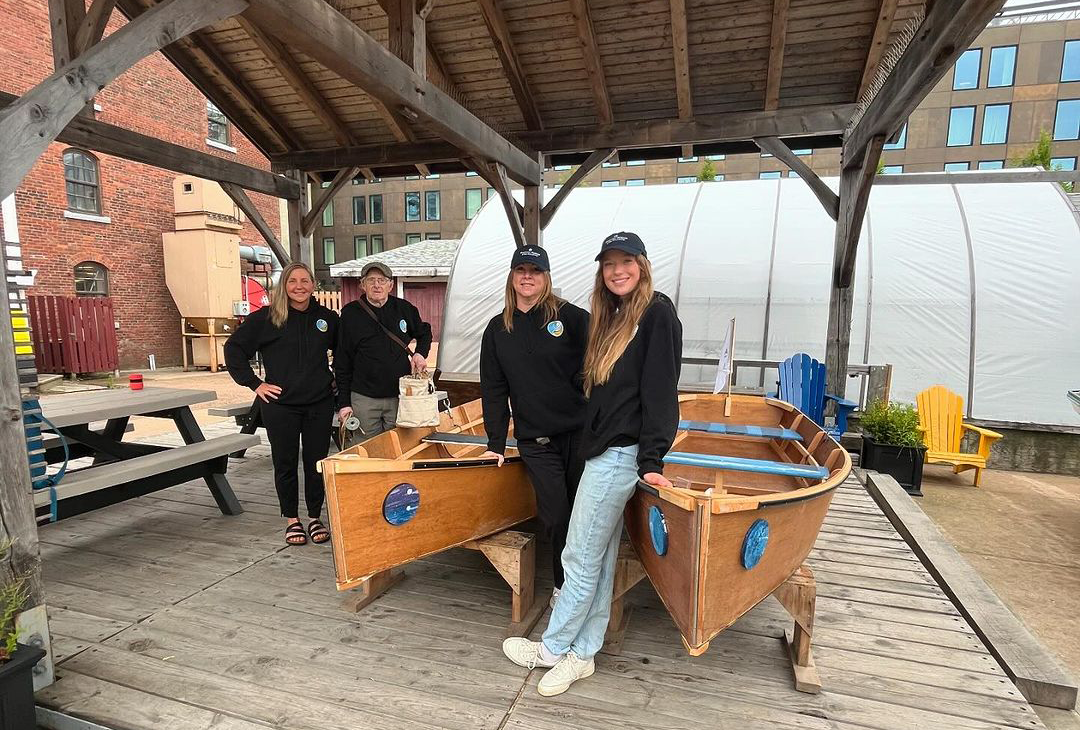
Grace Elliott, Ocean Interpretation Intern, Maritime Museum of the Atlantic
The Maritime Museum Boat School was created to offer young people a space where they can learn and develop new skills in an environment where they feel a genuine sense of belonging. As I approach the end of my four-month internship, I realize I too have found a profound sense of community here. The Boat School team’s welcoming atmosphere made me feel immediately included and valued. This accepting environment is crucial for the youth involved in the program, many of whom come from underprivileged backgrounds. It has been immensely rewarding to see these young individuals benefit from the feelings of accomplishment and empowerment that often result from the teachings and time spent at Boat School.
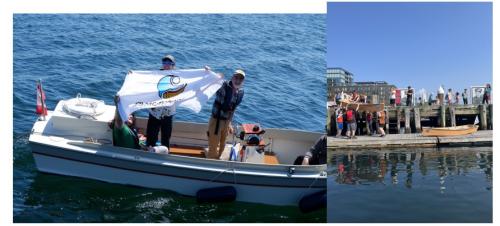
One of the wonderful things about Boat School is its emphasis on hands-on learning. In today's world, it is increasingly rare to find opportunities to learn by doing. Traditional classrooms typically focus on teaching kids to retain information by reading and listening. On the other hand, Boat School programs are built around experiential learning. Mistakes are embraced as learning opportunities, allowing students to practice and refine valuable problem-solving and adaptability skills. Through every step of the way in boat building, there is physical evidence of a student's growing knowledge as their floating project comes together. Many students begin projects with hesitation but finish with a newfound sense of confidence in their abilities. This experience not only builds beautiful boats, but also builds creativity, self-assurance, and resilience in young people.
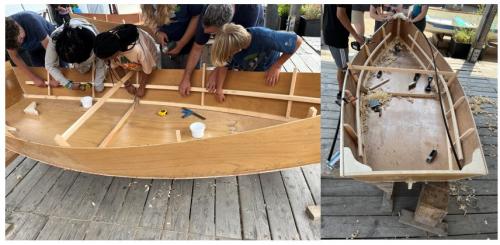
In my role at Boat School, I was given the responsibility of creating and delivering a science program that introduces oceanography and environmental science to youth. The goal of this program is to educate youth on the natural environment and inspire an interest in ocean science through fun, hands-on experiences. I saw the integration of science as complementary to the existing Boat School program because it brings new purpose to the boats built by students. For example, we used the restored 11-foot Wherry Yawl, Lupin, to pull a plankton tow and took water samples with the Van Dorn from Puffin, a 21-foot Handy Billy built by teenagers. These boats allowed us to explore the untouched ecosystems and biodiversity on McNab's island. It was incredibly special to show young Canadian newcomers the islands rare natural features, such as wild blueberries, raspberries and rose bushes.
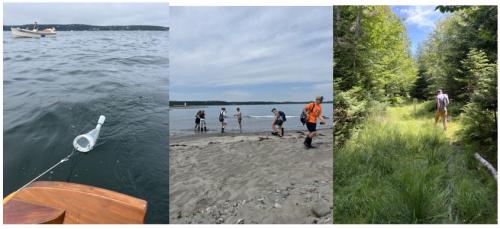
During our oceanography activities, young people were given opportunities to ask questions and make predictions about water quality and marine ecosystems. I aimed to design and run science activities in a way that would evoke curiosity and lead to further exploration. Many of the young participants had never used a microscope before, so I loved introducing them to the world of microorganisms. Each person collected samples -typically aquatic plants, fungi, algae, or harbour water- and created their own slide. With a bit of assistance, they used the microscope to observe the tiny living organisms and were usually surprised by what they saw. It was interesting and at times amusing to see their reactions as they made new discoveries about the environment that surrounds us. I was delighted by the lessons that extended beyond environmental and scientific education. These outdoor activities fostered curiosity and inspired a deeper inquisitiveness in youth. Engaging with science is like uncovering pieces of a puzzle, it cultivates a desire to learn and build on what you already know. In many ways it parallels boat building, the more you grow to understand, the faster things will come together.
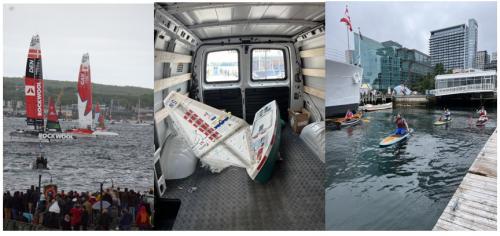
It was truly wonderful to be part of such a meaningful program, and I must admit that the thought of leaving has brought a few misty-eyed moments. Outside of my science programming role, I have also enjoyed participating in various museum events, including the SailGP watch party, a harbour tour on the Bluenose II, and the relaunch of Miniboat Warrior. I made countless connections with individuals in the Nova Scotia Museum network and with partners of Boat School and the Maritime Museum. One of the most memorable moments was watching my supervisor take an unexpected plunge into Halifax Harbour during a noontime Stand Up Paddle Wednesday, a weekly activity we created to include all museum employees in Boat School.
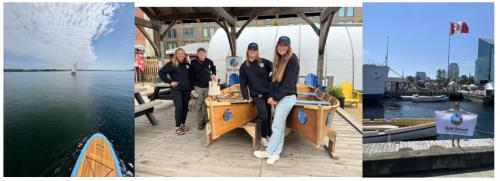
I feel incredibly fortunate to have been a part of Boat School and look forward to seeing the program’s continued growth and the positive impact it will undoubtedly have on Nova Scotia’s youth and maritime culture.